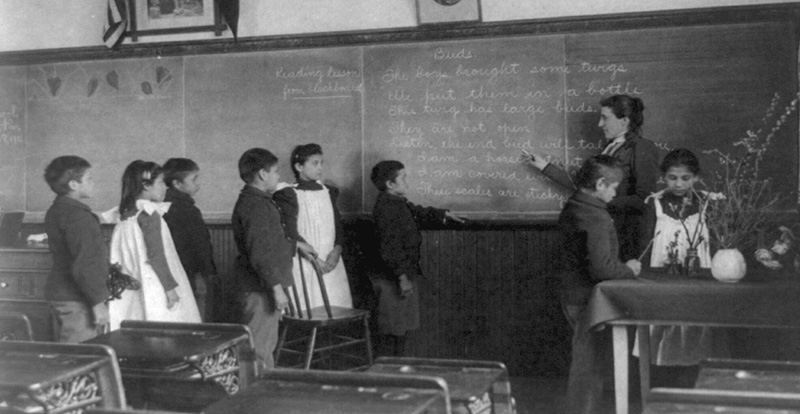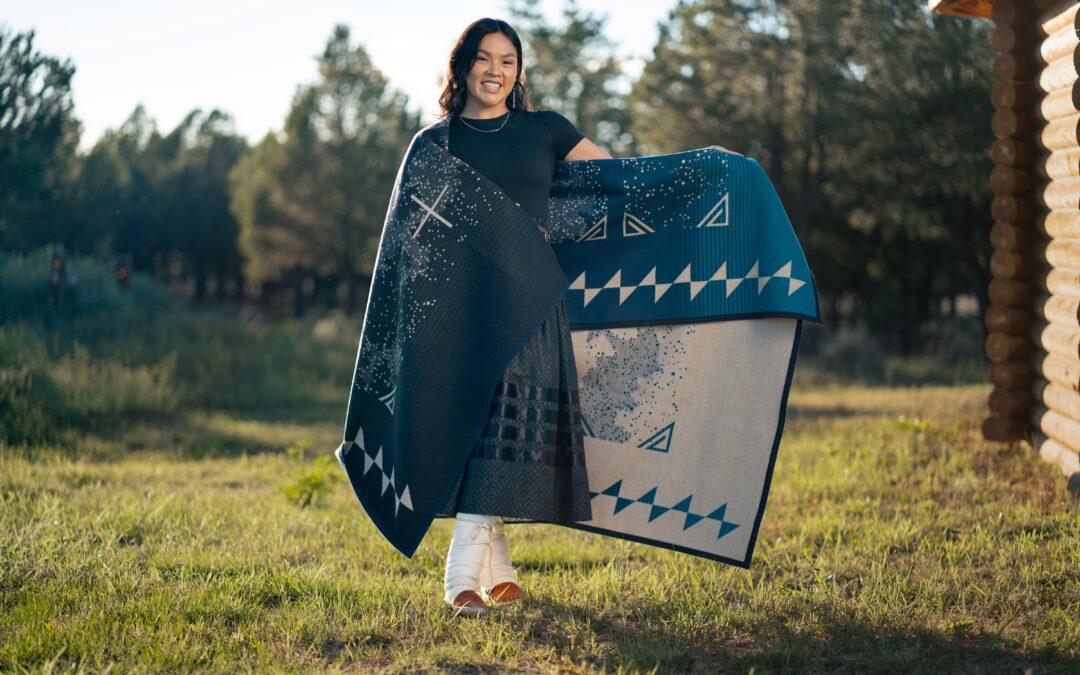Contact:
Dina Horwedel, J.D.
Director of Public Education, American Indian College Fund, 303-426-8900,
dhorwedel@collegefund.org
Johnny Poolaw, Ph.D.
Director of Student Success, American Indian Science and Engineering Society, 720-758-9725,
jpoolaw@aises.org
Sara A. LaBarge, M.S.Ed, CFRE
Director of Strategic Partnerships and Interim Marketing and Communications Contact, Native Forward Scholars Fund
sara@nativeforward.org
John L. Garland, Ph.D., CRC
Director, Research and Student Success, The Cobell Scholarship Program, Indigenous Education, Inc.,
john.garland@cobellscholar.org
July 3, 2023, Denver, Colo.— The four organizations that comprise the National Native Scholarships Providers (the American Indian College Fund, the American Indian Science and Engineering Society, the Cobell Scholarship Program administered by Indigenous Education, Inc., and Native Forward Scholars Fund) were disappointed by the June 30th U.S. Supreme Court decision invalidating President Biden’s proposal to cancel billions of dollars of federal student loan debt. The Court held it was an overreach of executive power, with Chief Justice John G. Roberts writing that “a mass debt cancellation program of such significance required clear approval by Congress.”
The Biden administration used the same legal rationale the Trump administration used to pause student loan debt during the pandemic. President Biden promised in August 2022 to forgive $10,000 in individual student loan debt for people earning less than $125,000 per year, or $250,000 per household, and $20,000 for people who received Pell grants. Pell grants are considered a marker for financial need and are distributed to low-income families.
To date, nearly 26 million borrowers have applied for a portion of student loan forgiveness. Sixteen million applications have been approved to date, however, due to the legal challenge, no debts were forgiven, nor additional applications accepted. President Biden has vowed to assist students through another route using the Higher Education Act of 1965, Section 1082 of Title 20 of the United States Code, which gives the secretary of education the authority to “compromise, waive, or release any right, title, claim, lien, or demand, however acquired, including any equity or any right of redemption.”
The National Study on College Affordability for Indigenous Students conducted in 2022 by the National Native Scholarship Providers (NNSP) indicated that 64% of all Indigenous student college debt was in student loans. Likewise, more than half of the study’s Indigenous respondents reported college debt balances at $20,000 or less. Without alternative routes for debt forgiveness, today’s ruling will continue to saddle many of our American Indian and Alaska Native scholars with college debt, negatively affecting their potential for post-college success following a pandemic that disproportionately affected Tribal communities.
The NNSP is calling upon our lawmakers, policymakers, and higher education institutions to work together to make a college education more affordable and pricing transparent for all students. A lifetime of debt in exchange for a college education, particularly for Native students, most of whom do not enjoy generational wealth, does not live up to the democratic promise of prosperity and is a detriment to our ability to compete in the global marketplace.
About the American Indian College Fund—The American Indian College Fund has been the nation’s largest charity supporting Native higher education for 33 years. The College Fund believes “Education is the answer” and provided $14.45 million in scholarships and other direct student support to American Indian students in 2021-22. Since its founding in 1989 the College Fund has provided more than $259 million in scholarships, programmatic and community support. The College Fund also supports a variety of academic and support programs at the nation’s 35 accredited tribal colleges and universities, which are located on or near Indian reservations, ensuring students have the tools to graduate and succeed in their careers. The College Fund consistently receives top ratings from independent charity evaluators and is one of the nation’s top 100 charities named to the Better Business Bureau’s Wise Giving Alliance. For more information about the American Indian College Fund, please visit https://collegefund.org.
About AISES — Advancing Indigenous People in STEM—For 45 years, AISES has focused on substantially increasing the representation of Indigenous peoples of North America and the Pacific Islands in critically needed STEM (science, technology, engineering, math) disciplines. This robust nonprofit currently supports individual student and professional members across the U.S. and Canada through chartered college and university chapters, professional chapters, tribal chapters, and affiliated PK-12 schools. Members benefit from diverse STEM-focused programming that supports careers and promotes student success and workforce development in multiple crucial areas. To learn more visit https://www.aises.org/.
About The Cobell Scholarship Program, Indigenous Education, Inc.—Created in 2016 for the express purpose to administer the Cobell Scholarship Program, Indigenous Education, Inc. provides highly competitive scholarship and fellowship opportunities for Native vocational, undergraduate, and graduate students through empowering them with an impactful scholarship experience designed to support their success in higher education. The overarching mission and vision of Indigenous Education, Inc. is to support American Indian and Alaska Native student success. Since the program’s beginning, it has supported over 4000 students with more than $35,000,000 in scholarships to attend more than 400 colleges and universities worldwide. To learn more about, Ms. Cobell, IEI and the Cobell Scholarship, visit https://cobellscholar.org.
About Native Forward Scholars Fund—As the nation’s longest-running scholarship provider for Native students, we have awarded over $350 million in direct scholarships since 1969 and have empowered over 20,000 students from over 500 Tribes in all 50 states. Native Forward is committed to creating an impact in Native communities by providing access to quality education for Native students. We believe higher education deepens our transformative impact on every part of society. Native Forward invests 95% of our resources directly into Native students’ higher education experience at 1,700+ institutions across the U.S. in undergraduate, graduate, and professional degree programs.
Our goal is to create opportunities for success for all Native people. Knowledge and experience are powerful tools that can advance and preserve our way of life. By honoring our history, we are creating our own brilliant future. We are Native Forward Scholars Fund. For more information, visit https://www.nativeforward.org.
Journalists — The American Indian College Fund does not use the acronym AICF. On second reference, please use the College Fund. Native Forward Scholars Fund does not use the acronym NFSF. On second reference, please use the Native Forward.











